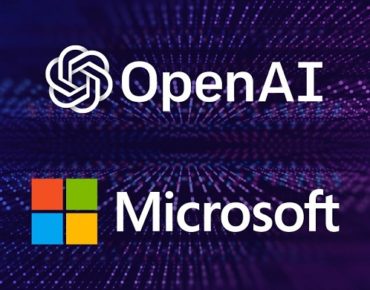Microsoft Investing $1B in OpenAI Artificial General Intelligence R&D

Artificial general intelligence (AGI) is AI’s moonshot, the next giant leap for the AI field. Microsoft regards it to be feasible enough to warrant a $1 billion investment in OpenAI, the not-for-profit research organization formed in 2015 by Elon Musk and others. AGI would mean breaking AI from its current, narrow confines in which AI handles specific tasks and specific problems and moving toward “strong AI,” enabling machines and robots to handle multiple tasks and to integrate the learning from multiple disciplines simultaneously, referred to as the “emergent property.”
“We’re partnering to develop a hardware and software platform within Microsoft Azure which will scale to AGI,” said Greg Brockman, OpenAI co-founder and CTO, in a blog. “We’ll jointly develop new Azure AI supercomputing technologies, and Microsoft will become our exclusive cloud provider — so we’ll be working hard together to further extend Microsoft Azure’s capabilities in large-scale AI systems.”
OpenAI, whose stated purpose is to build AI that benefits humanity, isn’t underplaying its ambitions: “We believe that the creation of beneficial AGI will be the most important technological development in human history, with the potential to shape the trajectory of humanity.”
“…an AGI will be a system capable of mastering a field of study to the world-expert level, and mastering more fields than any one human — like a tool that combines the skills of Curie, Turing, and Bach. An AGI working on a problem would be able to see connections across disciplines that no human could. We want AGI to work with people to solve currently intractable multi-disciplinary problems, including global challenges, such as climate change, affordable and high-quality healthcare and personalized education. We think its impact should be to give everyone economic freedom to pursue what they find most fulfilling, creating new opportunities for all of our lives that are unimaginable today.
Brockman said OpenAI’s “hard technical path” will “require a unified software engineering and AI research effort of massive computational scale….”
Microsoft, meanwhile, said it and OpenAI are “two companies thinking deeply about the role of AI in the world and how to build secure, trustworthy and ethical AI to serve the public, have partnered to further extend Microsoft Azure’s capabilities in large-scale AI systems.”
In its announcement, Microsoft said the organizations will jointly build new Azure AI supercomputing technologies, that OpenAI will port its services to run on Microsoft Azure, and that Microsoft will become OpenAI’s preferred partner for commercializing new AI technologies.
“The companies will focus on building a computational platform in Azure of unprecedented scale, which will train and run increasingly advanced AI models,” Microsoft said, “including hardware technologies that build on Microsoft’s supercomputing technology, and adhere to the two companies’ shared principles on ethics and trust. This will create the foundation for advancements in AI to be implemented in a safe, secure and trustworthy way and is a critical reason the companies chose to partner together.”
“AI is one of the most transformative technologies of our time and has the potential to help solve many of our world’s most pressing challenges,” said Satya Nadella, CEO, Microsoft. “By bringing together OpenAI’s breakthrough technology with new Azure AI supercomputing technologies, our ambition is to democratize AI — while always keeping AI safety front and center — so everyone can benefit.”
In its nearly four-year history, OpenAI – founded by Musk, Altman and other investors who pledged more than $1 billion to the venture – has announced, in 2016, a public beta of OpenAI Gym, a platform for reinforcement learning research and, also announced in 2016, Universe, a software platform for measuring and training AI across games, websites and other applications around the world.
Though Musk, known for his concerns about the potential negative impacts of AI, has remained a OpenAI donor, he resigned from its board in February of last year because of possible of future conflicts of interest with Tesla’s development of autonomous vehicles.












